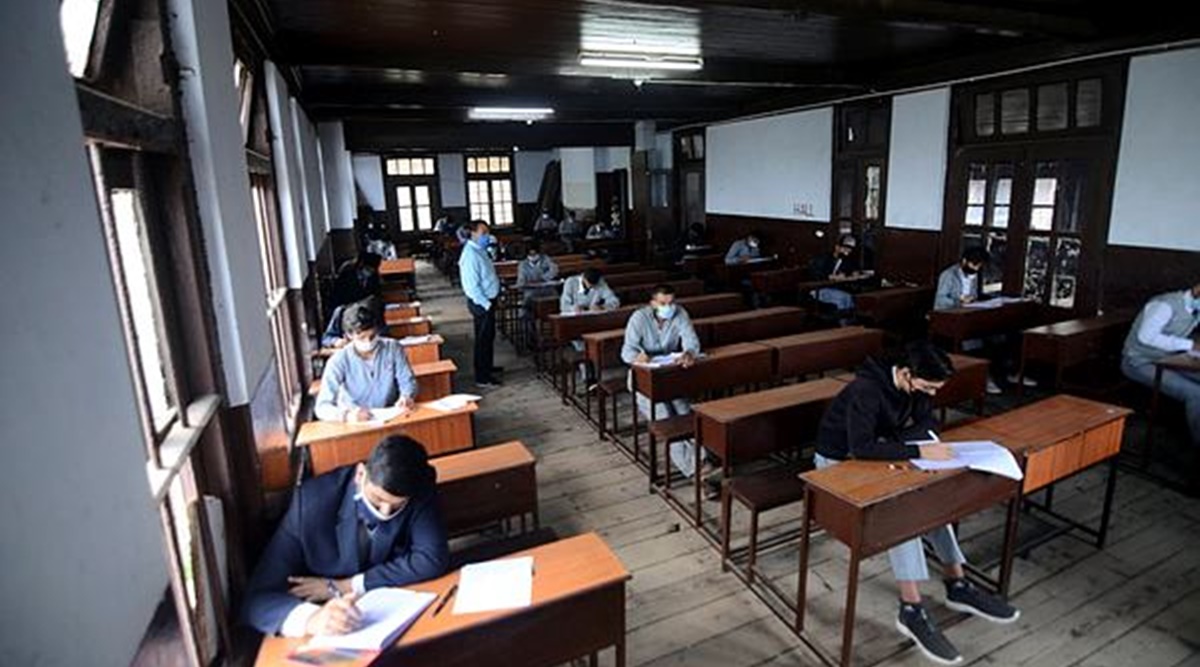Lack of infrastructure and privacy issues have also created problems in ensuring surveillance while students attempt the exams from home.
The pre-boards are mock preparations for the final high-stake board examination. Since this entire academic session has been held online, most schools had been readying to hold pre-boards in an online set-up. However, CBSE has recently announced to hold finals in offline mode, which has prompted many majority schools to say they would also prefer pre-board exams at examination centres, which, however, would not be possible without the local government’s nod.
At the moment, the key concerns of most schools are that students have little practice of writing in an exam-like situation and that there is no anti-cheating mechanism in place.
“We do not have a choice at this moment. We are very keen to start school with students present physically. So, the only option is to do it online. For students, writing continuously for three-hours is a bit of a challenge in the online mode. So, we may look at a shorter question paper and therefore a shorter exam duration. CBSE is also increasing the objective section of the paper to reduce the time duration,” said Bishwajit Banerjee, principal of VidyaGyan Bulandshahr.
Noting that it will be difficult for students who have spent the entire year attending online classes online to write a full-fledged paper in offline mode, many schools have resorted to a mixed oath.
“So we will be holding pre-boards in online mode. More so, since parents were reluctant to send kids to school for pre-boards,” said Divya Bhatia, Principal, Amity International School, Saket. The school has opted for low-tech initiatives.
“Question papers will be uploaded on the assignment option of MS TEAMS. Three-and-a-half hours’ time slot will be provided which includes reading time, attempting the paper, and uploading. Students will download the question paper and attempt the exam by switching on the camera throughout the exam duration. Students will then scan the numbered sheets, prepare a single pdf doc using Microsoft LENS app or any other suitable app and upload the complete answer sheet in the respective MS TEAMS,” she said.
Swoyan Satyendu, director at ODM Public School, Odisha, has also followed a similar model. The school, however, has also conducted multiple series of exams after creating different groups of students based on their academic performance.
“We have divided students into groups of 25 to 30 students based on their performance last year. We have allotted mentors, and we have selected one subject for revision for a week and followed by an exam for the same at the end of the week. So for six subjects, our first pre-board would get over in six weeks. We will be following a different worksheet-cum-practice based pre-board for our next pre-board. So our strategy for revision cum pre-board will be changing for each pre-board,” said Satyendu.
Also read | Coding in school: Experts point to lack of proper curriculum, say move will widen digital divide
Amity International had held several orientation sessions for the students as well as parents to explain the process of conducting the exam, subject-related orientations for explaining the changes in the question paper pattern, tips to crack the exam and the importance of taking the work with seriousness and follow anti-cheating protocol.
Lack of infrastructure and privacy issues have also created problems in ensuring surveillance. “It is difficult to ask the child to write an exam with his/her camera on, and when there are 40 students it is hard for the examiner to ensure that they are not using any unfair means. Hailing from economically weaker sections, our students also face several other challenges, the biggest being patchy internet connectivity. They do not have a laptop, desktop but a small mobile screen on which they have to do everything. During the exam, we randomly asked them to switch on the camera so that some level of monitoring could be done. We also coach them on the disadvantages of taking shortcuts like cheating, ultimately it’s their learning journey,” said Banerjee.
Many schools are giving options to students to opt for offline or online pre-boards. Vandana Gupta, EuroSchool North Campus, Yelahanka, Bengaluru said, “We have planned to give both options, virtual exams as well as physical examinations in the school premises. While we would prefer to conduct the pre-boards physically, we are very clear that we will do so only once we have a green signal from the government in this regard. For those who prefer online mode, we also have our own proprietary Digital Learning Ecosystem – ARGUS, through which we ensure that students get adequate written practice and revision throughout the academic session. ARGUS allows the children to follow the processes of writing test papers, scanning and uploading it back on the app. Teachers then download the paper, correct it, and give specific comments and sharing it back. This ensures students get adequate practice to arrive at the precision and speed needed for the boards.”
Having multiple rounds of pre-boards is also one of the solutions opted by some schools. “We are planning to continue the online pattern of conducting examinations for our first round of pre-boards scheduled for December. Hopefully, the second round of pre-boards would be conducted in a classroom setting in January. We have a three-hour online window on our testing software, to ensure fairness for all students taking the exam at the same time. Regular extra classes and doubt sessions for different categories of students, based on the students’ performance, have also been initiate,” said Sangeeta Hajela, Principal, DPS Indirapuram, Delhi.
Source: Read Full Article


